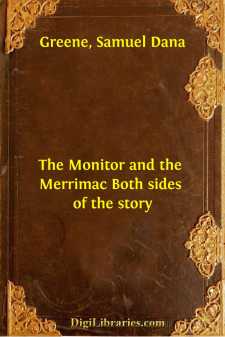History
- Africa 30
- Americas (North Central South West Indies) 50
- Ancient 68
- Asia 58
- Australia & New Zealand 8
- Canada 41
- Caribbean & West Indies 1
- Civilization 20
- Eastern Europe 12
- Europe 310
- Expeditions & Discoveries 60
- General 77
- Historical Geography 1
- Jewish 9
- Latin America 3
- Medieval 8
- Middle East 13
- Military
- Revolutionary 8
- Study & Teaching 5
- United States 353
- Western Europe 56
- World 13
Military Books
Sort by:
by:
John McElroy
INTRODUCTION. The fifth part of a century almost has sped with the flight of time since the outbreak of the Slaveholder's Rebellion against the United States. The young men of to-day were then babes in their cradles, or, if more than that, too young to be appalled by the terror of the times. Those now graduating from our schools of learning to be teachers of youth and leaders of public thought, if...
more...
PREFACE. The two dramas,—PICCOLOMINI, or the first part of WALLENSTEIN, and the DEATH OF WALLENSTEIN, are introduced in the original manuscript by a prelude in one act, entitled WALLENSTEIN'S CAMP. This is written in rhyme, and in nine-syllable verse, in the same lilting metre (if that expression may be permitted), with the second Eclogue of Spenser's Shepherd's Calendar. This prelude...
more...
NAVY SHIPS More than one-third of our naval force was being reviewed by the President. A most impressive assembly of men-o'-war it was, in tonnage and weight of metal the greatest ever floated by the waters of the western hemisphere. The last of the fleet had arrived on the night before. From the bluffs along the shore they might have been seen approaching with a mysterious play of lights across...
more...
CHAPTER I. BRAZILIAN AND PORTUGUESE FACTIONS—DON PEDEO ORDERED TO QUIT BRAZIL—APPOINTED "PERPETUAL PROTECTOR"—PROCLAIMED EMPEROR OF BRAZIL—EFFORTS TO OBTAIN FOREIGN OFFICERS AND SEAMEN—THE NAVAL COMMAND OFFERED TO ME—ACCEPTATION THEREOF—ARRIVAL AT RIO DE JANEIRO—VISIT OF INSPECTION TO THE SQUADRON—CONDITION OF THE VESSELS—INFERIORITY OF SEAMEN—IMPERIAL AFFABILITY—ATTEMPT...
more...
CHAPTER I EUROPE BEFORE THE GREAT WAR To understand the Great War it is not sufficient to read the daily happenings of military and naval events as they are told in newspapers and magazines. We must go back of the facts of to-day and find in national history and personal ambition the causes of the present struggle. Years of preparation were necessary before German military leaders could convert a...
more...
"Go yourselves, every man of you, and stand in the ranks and either a victory beyond all victories in its glory awaits you, or falling you shall fall greatly, and worthy of your past."—Demosthenes To the Athenians. What lesson will America draw from the present Great War? Must she see the heads of her own children at the foot of the guillotine to realize that it will cut, or will she accept...
more...
CHAPTER I INTRODUCTORY REFLECTIONS The bursting of a thunderstorm is preceded by certain definite phenomena in the atmosphere. The electric currents separate, and the storm is the result of atmospheric tension which can no longer be repressed. Whether or no we become aware of these happenings through outward signs, whether the clouds appear to us more or less threatening, nothing can alter the fact...
more...
INTRODUCTION This is the first-hand story of what was done and seen and felt on each side in the battle of the Monitor and the Merrimac. The actual experiences on both vessels are pictured, in one case by the commander of the Monitor, then a lieutenant, and the next in rank, Lieutenant Greene, and in the other by Chief-Engineer Ramsay of the Merrimac. Clearly such a record of personal experiences has a...
more...
I THE WAY TO CONCRETE REALIZATION More and more frequently does one hear this phrase, The League of Nations, used to express the outline idea of the new world that will come out of the war. There can be no doubt that the phrase has taken hold of the imaginations of great multitudes of people: it is one of those creative phrases that may alter the whole destiny of mankind. But as yet it is still a very...
more...
CHAPTER I. INVITATION TO TAKE COMMAND OF CHILIAN NAVY—ARRIVAL AT VALPARAISO—FIRST EXPEDITION TO PERU—ATTACK ON SPANISH SHIPPING AT CALLAO—DEPARTURE FOR HUACHO—CAPTURE OF SPANISH CONVOYS OF MONEY—PAITA TAKEN—RETURN TO VALPARAISO TO REORGANIZE THE SQUADRON—OFFER TO GIVE UP MY SHARE OF PRIZEMONEY TO THE REPUBLIC—THIS OFFER DECLINED BY THE SUPREME DIRECTOR—POPULAR...
more...











